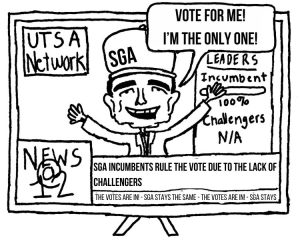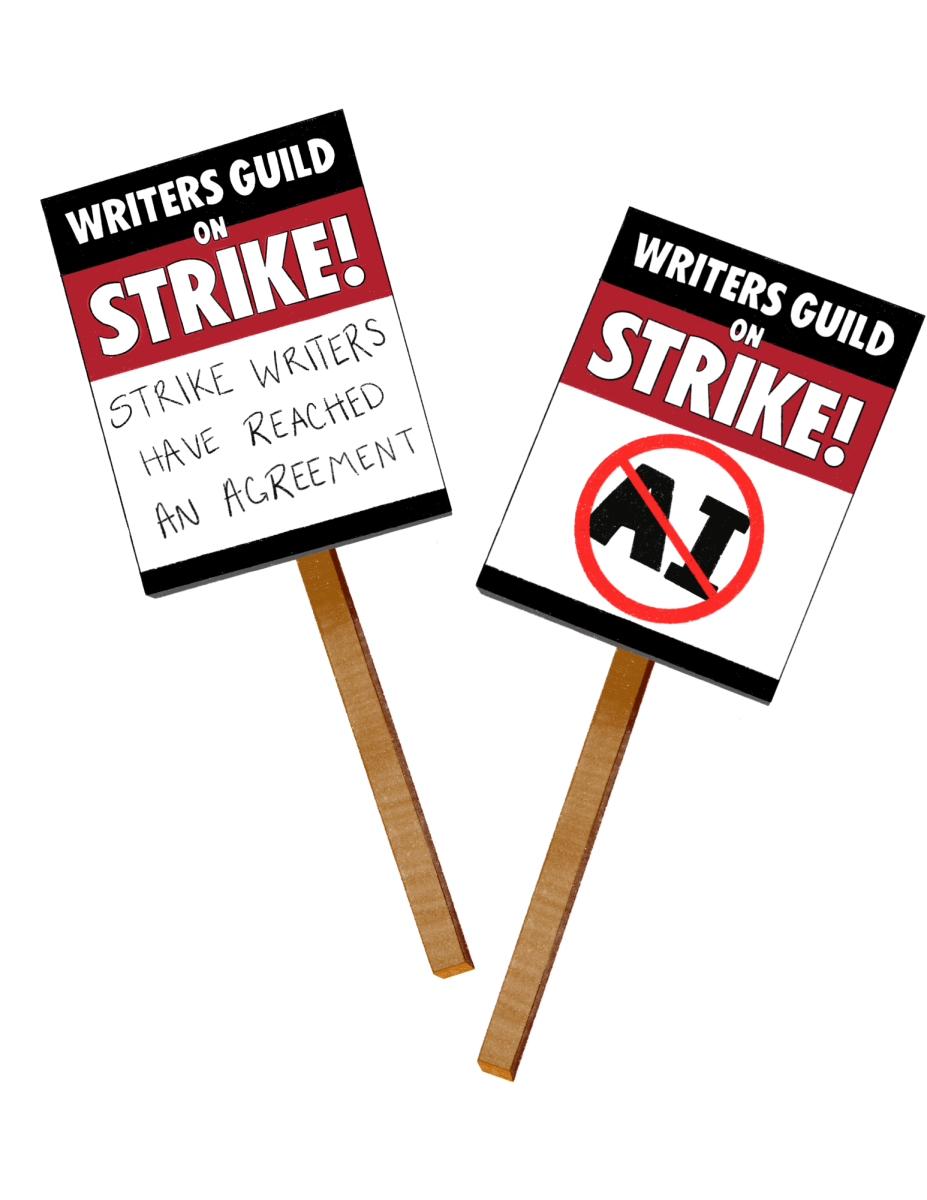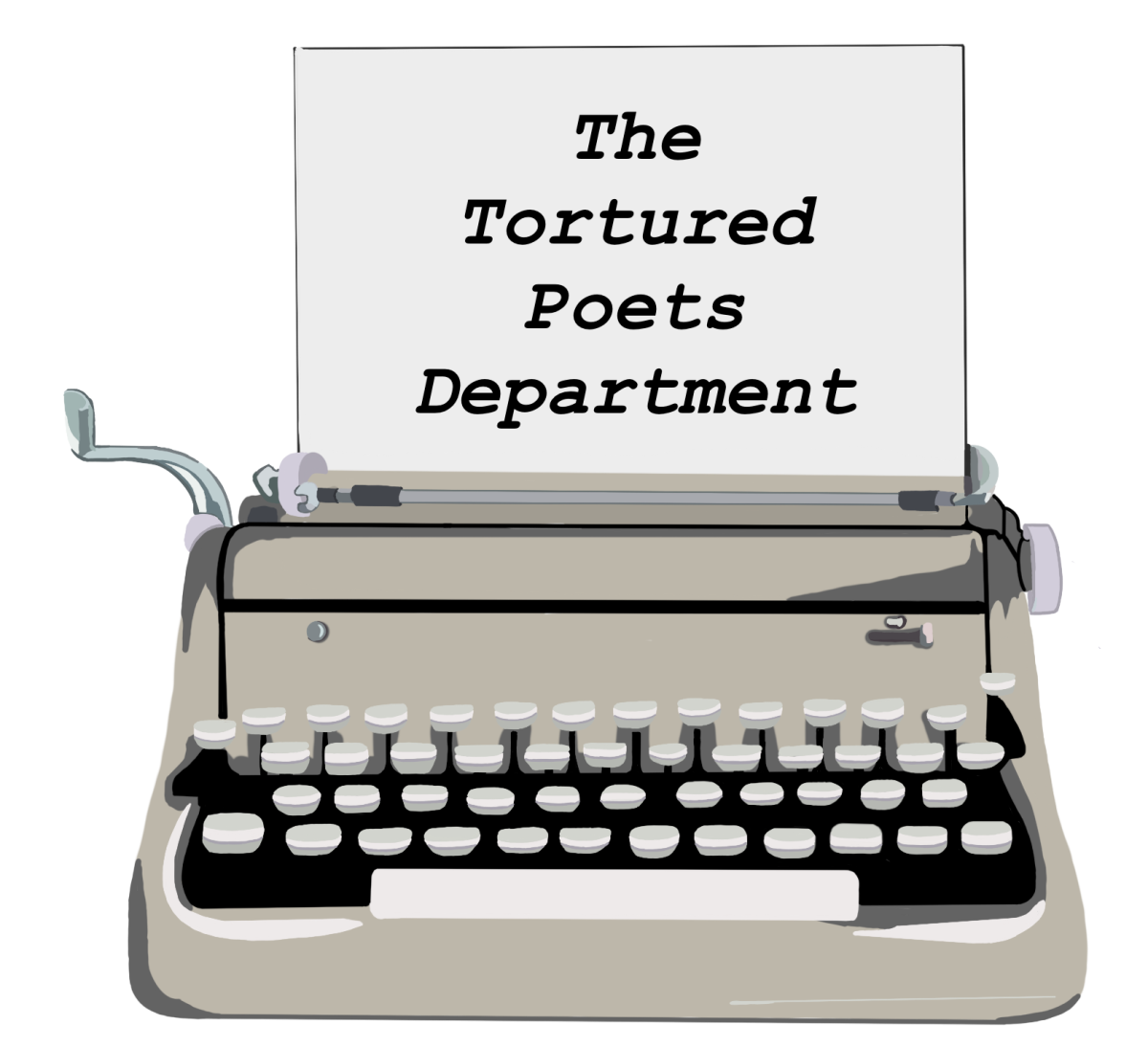In May, all production in the Hollywood film industry came to an abrupt halt. TV and movie premieres were delayed indefinitely as writers turned to big entertainment businesses, asking for better pay, working conditions and protection over their jobs. Every three years, the Writer’s Guild of America (WGA) has the opportunity to renegotiate their contracts with studios like Amazon and Warner Bros. This time, rejection was not taken lightly. Thus, the existential push toward industrial changes led to the writer’s strike.
Professor John Herrera teaches The Basics of Screenwriting and Screenwriting Workshop virtually at UTSA. He currently resides in California, where he attended the USC School of Cinematic Arts. His first writing job was on the sci-fi comedy Eureka. He has come a long way in his career since then and is now a co-executive producer for the Emmy award-winning series “The Handmaid’s Tale.” Unfortunately, due to the strike, he has not worked on an industry project in almost six months. Recently, a tentative agreement was reached, but Herrera acknowledged that there are many things the union must do before they vote on new policies and return to work. The protest was the first step in improving work conditions.
“The strike was about four things: residual, mini rooms, staffing and AI regulation,” Herrera said, explaining that a residual is the set pay for each episode or movie written. He explained the past policy and why it is out of date.
“The way it used to work is as a rerun,” Herrera said. “As they syndicated the episode every time it reran, you got a new check that would help you when you were unemployed.”
Being a screenwriter is a very competitive job. Often, many people work on one series or movie and then are left unemployed as they search for a new job. The residual is necessary for writers as they find new projects. Herrera puts it into perspective by explaining that, “on a really successful show, people could make $50,000 to $200,000 just on the ongoing payments from one episode over a decade, and that really helped people.” Then, times advanced, and most people switched from basic cable networks, opting for streaming as the main way to watch shows and movies. In this new system of streaming, it became difficult for writers to be paid the same. Studios tried to get around paying writers, and “when residuals came along, they acted like, well, this is streaming, this is the internet. It’s not TV.”
Streaming networks would not disclose their views and analytics for the writers to be compensated. The residual often “amounted to pennies,” Herrera explained, providing the TV show “Suits” as an example.
“In ‘Suits,’ which has been airing on Netflix, the residuals on that are nothing, even though tons of people are rewatching the show from a decade ago.” This means that people are not receiving livable amounts for their work. Writers are pressuring studios to “start considering streaming just like TV.”
Another issue on the writers’ minds is mini rooms.
“Before streamers greenlight a show, they would have a small group of writers get together, usually at a discounted rate, to work on the show,” Herrera said.
This does not seem odd until it is realized that if the show is greenlit, “all those people would be let go and they’d get new people” to write. There is no guarantee that the writers will ever get their episodes made.
This leads to difficulties with staffing because, usually in drama or comedy, the room can consist of anywhere from four to 12 people. Productions like late-night shows have 20 people because they need to bounce ideas and create endless jokes, but there have been many occasions where a single writer has been left to write an entire season alone. Herrera explained that most streaming services just say, “Hey, you can do it all yourself, right? You’re brilliant. Why don’t you do them all?” This could seem like a dream to many, “but the quality of the series ends up not being as good, and it hurts the industry.” Because of this, strikers are asking for a minimum of six writers in a room.
The fourth reason for striking is AI regulation. AI programs like Chat GPT pose a threat because they will build a rough draft for an entire script or story. Since the source of the idea is written by a proprietary AI, even if writers are hired to work on the project, they get paid little to nothing. The studios cut down on expenses because they have no mandate to give residuals, credit or proper compensation to the workers, but the truth is: When good quality work is needed, money is owed.
Because of the writer’s strike, there was nearly a six-month period where an entire industry of people did not receive pay. For people in need, the WGA offered Strike Fund Assistance and Entertainment Community Fund Emergency Financial Assistance. “I’m lucky I didn’t go into debt because I had money saved up,” Herrera said.
“I’m lucky I didn’t go into debt because I had money saved up,” Herrera said
He was able to get by without the extra funding, but it was still unfortunate because “it would have been nice to save it up to buy a house, and now we’re going to have to wait a little longer.” Many others in the industry were dealt similar cards. Their money had to be carefully handled during these times.
The writer’s strike officially ended when the WGA reached a tentative agreement on Sept. 27. According to the WGA Contract 2023, the strike was necessary because many improvements to their condition were made. Regarding residuals, they won a viewership streaming bonus. When it comes to mini rooms, the original proposal was for six people, and the studio compromised and said, “If a development room of three or more writers is convened, a minimum staff of three writer-producers is required.” The writers wanted to keep AI literature from being used as source material. The studio responded by saying, “AI-generated written material is not considered literary material” and gave the writers the right to use AI or not, and companies cannot enforce it either.
To learn more about the resolve of the writer’s strike, check out the WGA website, https://www.wgacontract2023.org/the-campaign/what-we-won.













Gaile Shaw • Feb 26, 2024 at 9:31 pm
Bria:
You r amazing…….be sure to keep that same energy……..live every minute of you